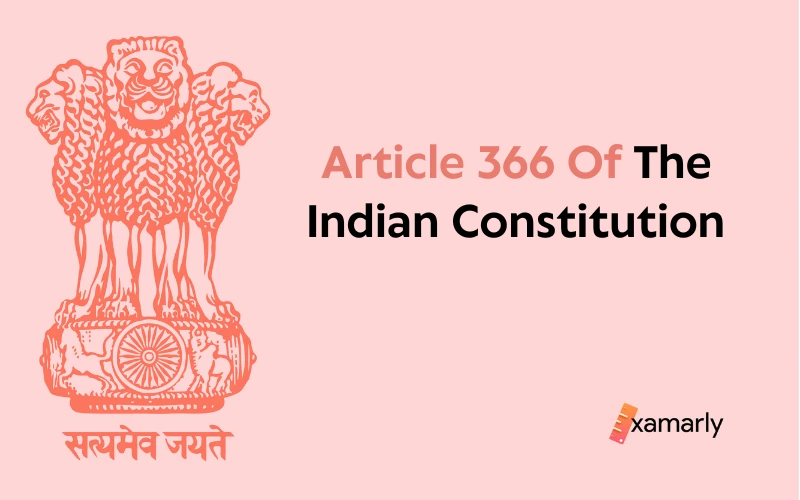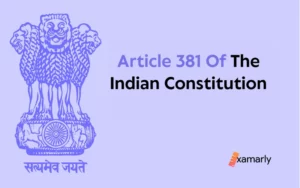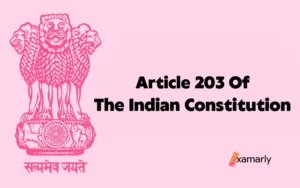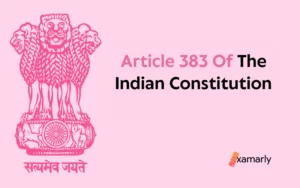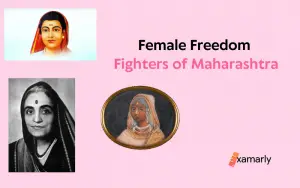Have you ever wondered what the Constitution of India means when it refers to “Articles,” “Parts,” “Clauses,” or “Schedules”? Have you ever questioned the meaning of many other terms used in the Constitution? If so, you are not alone!
The Constitution of India is a complex and comprehensive document that sets out the framework for the governance of the country and the protection of the rights and interests of its citizens. To ensure that the Constitution is understood and applied consistently and uniformly, it defines a number of key terms that are used throughout its provisions.
In this article, we will explore the definitions and significance of these terms, as provided in Article 366 of the Indian Constitution, and how they shape the interpretation and application of the Constitution.
- Provisions Of Article 366 Of The Indian Constitution
- Which Amendment Has Amended Article 366?
- Final thoughts
- FAQs On Article 366
- What Is "Goods And Services Tax"?
- What Is The Purpose Of Article 366?
- Which Amendment Has Updated Article 366 Of The Constitution Of India?
- What Is 352 Of The Indian Constitution?
- What Is Article 279A Of The Constitution Od India All About?
- In Which Part Of The Constitution Of India, Is Article 366 Contained?
- What Do You Mean Clause?
Provisions Of Article 366 Of The Indian Constitution
Article 366 of the Indian Constitution provides the definition of various terms such as “Articles”, “Parts”, “Clause”, etc. Its provisions are as follows:
Unless the context clearly dictates otherwise, the following terms in this Constitution have the respective meanings that are hereby ascribed to them, which are:
- The term “agricultural income” refers to agricultural income in accordance with the definition provided by the statutes that pertain to the Indian income tax;
- “Anglo-Indian” refers to a person whose father or any other male progenitors in the lineage is or was of European Descent, but who is or was domiciled in the Indian territory and is or was born within such territory of parents habitually residing there and not constituted there for temporary intents merely;
- “article” refers to an article of this Constitution;
- “borrow” encompasses the process of raising of money through the grant of annuities, and “loan” should be construed in a manner that is consistent with this definition;
- The term “clause” refers to a clause of the article where the expression appears;
- The term “corporation tax” refers to any form of tax levied on income, provided that the tax in question is one that must be paid by corporations and is a tax for which the following criteria are met:
- (a) That it is exempt from being charged in relation to agricultural income;
- (b) that no deduction in respect to the tax paid by corporations is permissible to be made from dividends payable by the companies to people, pursuant to any enactments which may be applicable to the tax;
- (c) that there is no provision for taking the tax thus paid into account when calculating the total income of individuals receiving such dividends for Indian income tax purposes, or when determining the Indian income tax payable by, or refundable to, such individuals;
- In the event of ambiguity, the term “corresponding Province,” “corresponding Indian State,” or “corresponding State” shall refer, as appropriate, to such Province, Indian State, or State as the President may declare to be the corresponding Province, corresponding Indian State, or corresponding State, as applicable, for the relevant purpose;
- Any liability in respect to any responsibility to repay capital sums by virtue of annuities and any liability under any guarantee is considered to fall under the definition of “debt,” and “debt charges” should be understood accordingly;
- The term “estate duty” refers to a duty to be assessed on or by reference to the principal value, determined in compliance with such rules as may be established by or under laws formed by Parliament or the Legislature of a State pertaining to the duty, of all property passing upon death or determined, under the provisions of the said laws, to pass;
- The term “existing law” refers to any law, Ordinance, order, bye-law, rule or regulation that was passed or formed prior to the beginning of this Constitution by any Legislature, authority, or individual having the ability to make such a law, Ordinance, order, bye-law, rule or regulation;
- “Federal Court” refers to the Federal Court formed under the Government of India Act, 1935.
- “Goods” refers to all articles, materials, and commodities;
- (12A) The term “goods and services tax” refers to any tax imposed on the supply of goods, services, or both, with the exception of taxes levied on the supply of alcoholic liquor for consumption by humans;
- Any obligation committed prior to the start of this Constitution to make payments in the occasion that the profits of an undertaking falling short of a specified amount are considered a “guarantee;”
- “High Court” refers to any court that is considered, for intents of this Constitution, to be the High Court for any State, which includes—
- (a) any court in the Indian territory that is formed or reformed under this Constitution as a High Court, and
- (b) any other Court within the Indian territory which may be proclaimed by Parliament by law to be a High Court for all or any of the objectives of this Constitution;
- “Indian State” refers to any region that the Government of the Dominion of India has recognized as such a State;
- “Part” refers to a Part of this Constitution;
- “Pension” means a pension, whether contributory or not, of any sort whatever is payable to or in respect of any person, including retirement pay so payable, a gratuity so payable, and any sum or sums so payable by virtue of the return, with or without interest thereon or any other addition thereto, of subscriptions to a provident fund;
- A proclamation issued pursuant to clause (1) of article 352 is referred to as a “proclamation of emergency.”
- The term “public notification” refers to a notification that is published in the Gazette of India or, depending on the circumstances, the Official Gazette of a State;
- “Railway” excludes
- (a) tramways that are entirely contained within municipal boundaries, or
- (b) any other line of communication that is entirely located within one state and has been proclaimed by law not to be a railway by Parliament;
- Note: This clause was omitted by the 7th amendment of the Indian Constitution.
- “Ruler” signifies a Prince, Chief, or another person who was acknowledged by the President as the Ruler of an Indian State prior to the implementation of the Constitution (Twenty-sixth Amendment) Act,1971, or anyone who was acknowledged by the President as the successor of such Ruler prior to such implementation;
- “Schedule” refers to a Schedule to this Constitution;
- “Scheduled Castes” refers to those castes, races, tribes, or portions or groups within such castes, races, or tribes that are considered under article 341 to be Scheduled Castes for the intents of this Constitution;
- “Scheduled Tribes” refers to those tribes or tribal communities, or portions or groups within those tribes or tribal communities, that are considered Scheduled Tribes for intents of this Constitution under article 342;
- The term “securities” encompasses stock;
- (26A) “Services” refers to anything besides goods;
- (26B) “State” comprises a Union territory having a legislature for the purposes of articles 246A, 268, 269, and 269A, as well as article 279A;
- (26C) the phrase “socially and educationally backward classes” refers to those backward classes that are thus deemed under article 342A for the objectives of the Central Government or the State or Union territory, depending on the context;
- “sub-clause” refers to a sub-clause within a clause that has the expression;
- “taxation” is the act of levying any tax or impost, whether general, local, or special, and the term “tax” is to be interpreted in this manner;
- A tax in the form of an excess profits tax is included within the term “tax on income”;
- (29A) The following are included in the definition of “tax on the sale or purchase of goods:”
- (a) a tax on the transfer, other than in the course of carrying out the terms of a contract, of property in any goods in exchange for cash, deferred payment, or some other valuable consideration;
- (b) a tax on the transfer of property in goods (whether in the form of products or in another form) associated with the execution of a works contract;
- (c) a tax on the delivery of products on hire-purchase or any other installment payment method;
- (d) a tax on the transfer of the right to use any items for any reason (whether or not for a set length of time) in exchange for money, a deferred payment, or other valuable consideration;
- (e) a tax on the supply of products by any unincorporated association or body of persons to a member thereof in exchange for cash, deferred payment, or some other valuable consideration;
- (f) a tax on the supply, by way of or as part of any service or in any other form whatever of goods, being food or any other article for human consumption or any drink (whether intoxicating or not intoxicating), when such a supply or service is for cash, deferred payment, or other valuable consideration;
and any transfer, delivery, or supply of goods shall be considered a sale of those goods by the people making the transfer, delivery, or supply and a purchase of those products by the person to whom such transfer, delivery, or supply is conducted.
- (29A) The following are included in the definition of “tax on the sale or purchase of goods:”
- The term “Union territory” refers to any Union territory that is included in the First Schedule and also encompasses any additional territory that is encompassed within the territory of India but is not mentioned in that Schedule.
Relatable Articles:
Which Amendment Has Amended Article 366?
Article 366 was modified and revised with the following Amendments:
- 42nd Amendment of the Constitution of India: Clause 4A and 26A was inserted by the said amendment to this Article.
- 43rd Amendment of the Constitution of India: Deleted the clauses inserted by the 42nd CAA.
- 101st Amendment of the Constitution of India: This amendment inserted Clauses 12A and 26A.
- 26th Amendment of the Constitution of India: This amendment substituted Clause 22.
- 102nd Amendment of the Constitution of India: This amendment inserted Clause 26C.
- 46th Amendment of the Constitution of India: This amendment inserted Clause 29A.
- 7th Amendment of the Constitution of India: This amendment substituted Clause 30 and deleted Clause 21.
Note: Check out these linked amendments to learn more about them by exploring them.
Final thoughts
In conclusion, Article 366 of the Constitution of India serves a crucial role in defining and clarifying the terms used throughout the Constitution, and in ensuring that the Constitution is interpreted and applied consistently and uniformly. By providing definitions for key terms such as “Articles,” “Parts,” “Clauses,” “Schedules,” and many more terms, Article 366 helps to clarify the scope of this Article. Understanding the definitions provided in Article 366 is essential to understanding and engaging with the Constitution of India.
FAQs On Article 366
What Is “Goods And Services Tax”?
The phrase “goods and services tax” refers to any tax on supply of goods, services, or both. The only exception to this is taxes that are imposed on the sale of alcoholic beverages intended for human use;
What Is The Purpose Of Article 366?
Article 366 provides definitions for various terms used throughout the Constitution of India, including “Articles,” “Parts,” “Clauses,” and “Schedules.” These definitions help to provide clarity and consistency in the interpretation and application of the Constitution.
Which Amendment Has Updated Article 366 Of The Constitution Of India?
7th, 26th, 42nd, 43rd, 46th, 101st, and 102nd are the amendment of the Indian Constitution that have revised Article 366.
What Is 352 Of The Indian Constitution?
Article 352 deals with the proclamation of emergency in the Constitution of India.
What Is Article 279A Of The Constitution Od India All About?
Article 279A of the Indian Constitution deals with the goods and service tax council.
In Which Part Of The Constitution Of India, Is Article 366 Contained?
Article 366 is contained in Part XIX titled “Miscellaneous” in the Constitution of India.
What Do You Mean Clause?
Clause 5 speaks about the term “Clause” in Article 366 of this Constitution. It states that the phrase “clause” refers to a particular clause of the article in which the expression is found;


